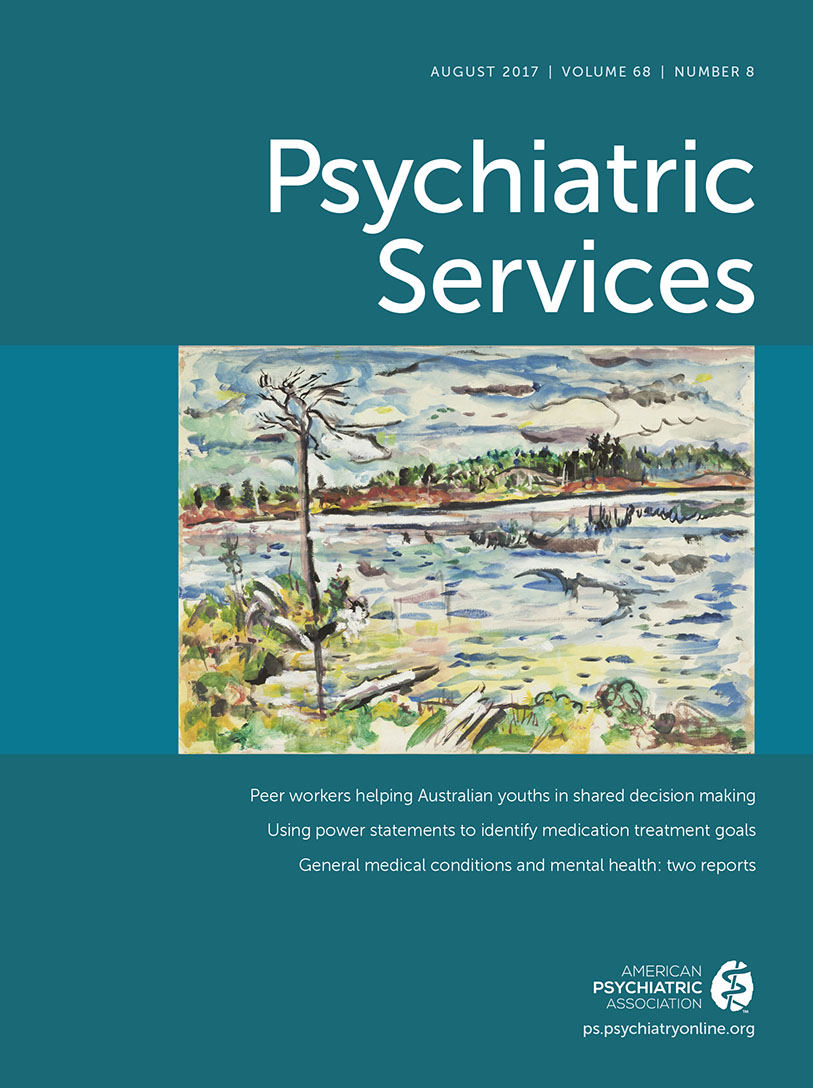Mental Health Treatment Seeking Among Veteran and Civilian Community College Students
Abstract
Objective:
A Web-based survey examined treatment seeking among community college students to inform the design of engagement interventions.
Methods:
Veteran and civilian community college students (N=765) were screened for mental disorders and reported perceptions of treatment need, effectiveness, and stigma, as well as service use. Regression analysis identified predictors of pharmacotherapy and psychotherapy use.
Results:
Of the 511 students who screened positive for a current mental disorder or reported a perceived need for treatment (149 veterans and 362 civilians), 30% reported past-year use of psychotropic medications. Predictors were perceived treatment need (odds ratio [OR]=7.81, p<.001) and the perception that psychotropic medications are effective (OR=3.38, p=.012). Eleven percent of participants reported past-year psychotherapy use, and predictors were a positive screen for posttraumatic stress disorder (OR=2.78, p=.04) and poorer financial status.
Conclusions:
Modifiable barriers, including perceived need for and effectiveness of treatment, were correlated with pharmacotherapy use and should be targeted by engagement interventions.



